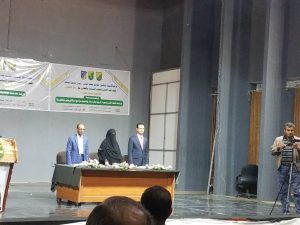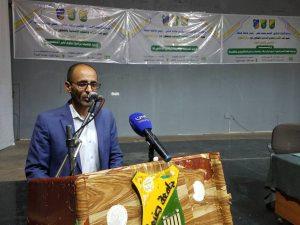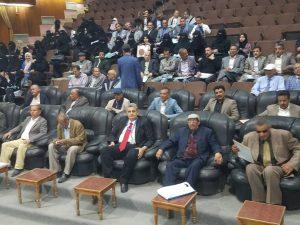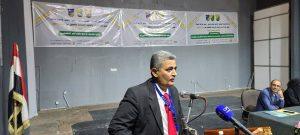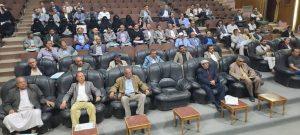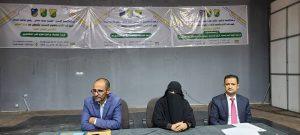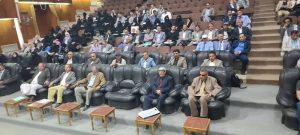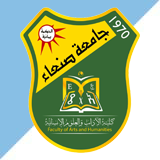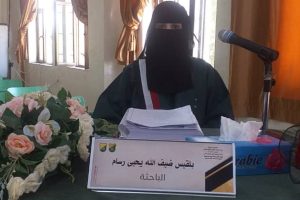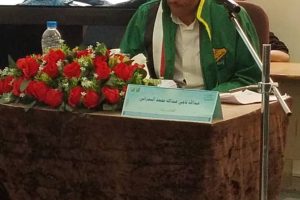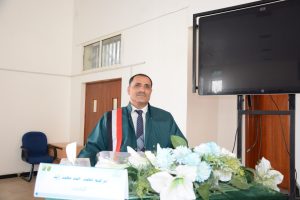Vision, Mission, Specification, Development, and Updating of Academic Programs in the Faculty of Arts & Humanities
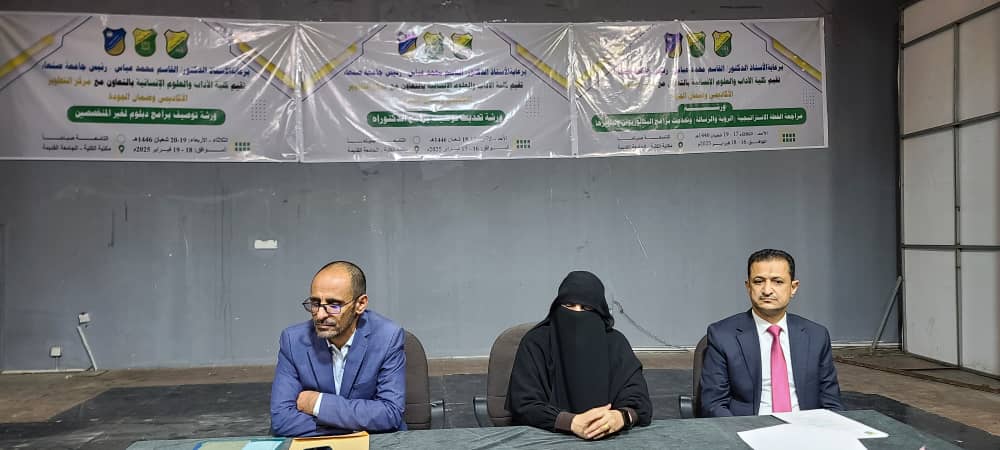
A scientific workshop was convened at the Faculty of Arts & Humanities to discuss and review the strategic plan, including the vision, mission, and specification of the diploma programs for non-specialists, as well as the PhD program at Sana’a University. This workshop, organized in collaboration with the Academic Accreditation and Quality Assurance Council, spanned four days and featured participation from a distinguished group of academics and specialists. The primary objective was to evaluate and enhance the strategic plan and program specification to advance the educational process and develop academic curricula in alignment with global standards.
Dr. Abdulmalik Eissa, the Dean of the Faculty, emphasized the significance of this workshop in enhancing university education and aligning its outcomes with societal needs and labor market demands. He highlighted the importance of fostering positive attitudes among students towards self-education and lifelong learning. Dr. Eissa noted that the Faculty, which comprises 13 academic departments, is committed to its academic and societal responsibilities. This commitment aims to strengthen cultural identity while updating educational and research strategies to contribute to national goals and prepare graduates who are capable of creativity and effective participation in nation-building.
The workshop’s focus included a comprehensive review and development of the strategic plan, which involved formulating a clear vision, mission, and aims to ensure alignment with future trends and adherence to academic quality standards. Additionally, there was an emphasis on updating and enhancing bachelor’s programs to integrate them with contemporary scientific and practical advancements while promoting the relevance of humanities within the current era.
Dr. Eissa also stressed the importance of developing diploma programs for non-specialists to address societal needs and labor market requirements, enabling individuals to engage meaningfully with the humanities. Furthermore, he advocated for the enhancement of the doctoral program to improve the quality of scientific research and its connection to contemporary societal and intellectual challenges, thereby contributing to cognitive development and a scientific renaissance.
Dr. Abdulrahman Al-Saafani, representing the Academic Accreditation Council, remarked that these initiatives align with a clear strategic vision aimed at achieving integration between the humanities and contemporary demands. He underscored the role of humanities in fostering an informed and educated society that remains steadfast in its cultural identity while contributing to national progress. He provided an overview of the strategic planning processes and outlined Sana’a University’s efforts toward attaining national academic accreditation for its Medicine and Surgery Program. Additionally, he highlighted ongoing efforts to secure institutional accreditation for ten colleges and programmatic accreditation for four academic programs. Dr. Al-Saafani commended the significant advancements made by the university over the past five years in areas such as academic performance, scientific research, quality assurance, and accreditation.
Dr. Huda Al-Imad, Dean of the Center for Development and Quality Assurance at Sana’a University, acknowledged the contributions of faculty members in enhancing the educational process and developing academic programs. She reiterated the university’s commitment to thoroughly describing all programs and courses at the BA, MA, and PhD levels. This commitment aims to ensure creativity, excellence, academic quality, community service, and the production and development of knowledge through rigorous scientific research across various fields at both individual and collective levels.
The workshop featured a comprehensive presentation on the principles of strategic planning and its significance within the academic context. Additionally, it included a detailed overview of the template designed for the description of postgraduate programs, including PhD and diploma offerings for non-specialists. The participants engaged in a thorough review of the strategic plan, as well as the vision and mission statements, alongside an examination of the descriptions of PhD programs from several departments within the Faculty.
